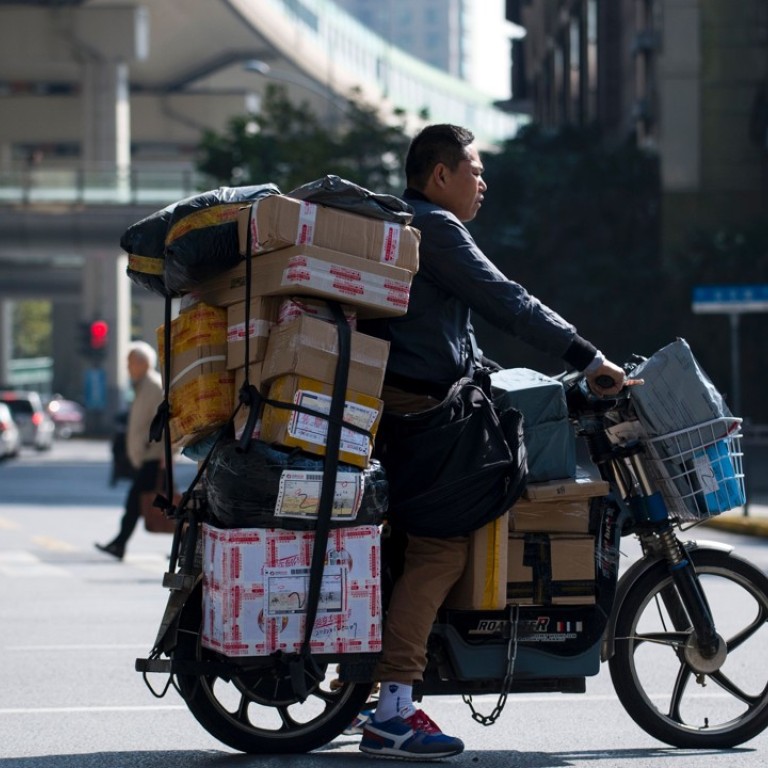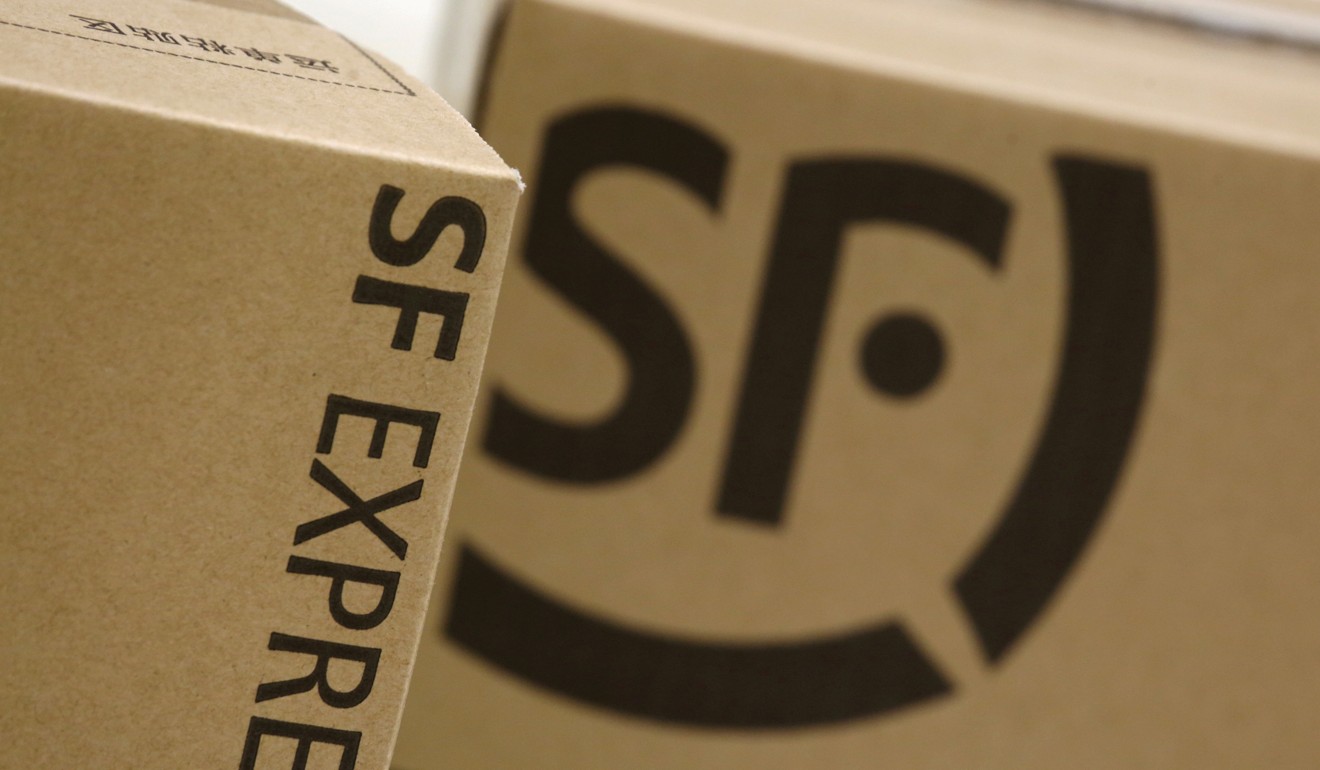
Why are China’s courier service firms not benefiting from Alibaba’s bonanza?
China’s parcel delivery firms have underperformed e-commerce giants this year because of the pressure to keep prices low. But the price war that has hamstrung the courier companies may finally be coming to an end
A doubling in the share prices and profit at Alibaba Group Holding has not tempted Wu Kan to buy the stocks of the closest allies of the Chinese e-commerce juggernaut: the nation’s parcel delivery firms.
The call seems prescient so far for Wu, a fund manager at Shanshan Finance in Shanghai. SF Holding, YTO Express Group and STO Express, the three biggest mainland-listed courier service companies, are not riding on the boom on China’s e-commerce industry, with profit growth slowing and share performance lagging far behind Alibaba.
Rising operating costs, mainly in the form of wages paid to delivery workers, and concerns about sizeable future expenditure on logistics system upgrades are weighing on the stocks, according to Wu, who does not hold shares of any Chinese parcel delivery firms.
``It’s a typical labour-intensive industry and these companies are already feeling the pain of rising costs, particularly the labour costs,’’ he said. ``To cut the costs, they may need to upgrade their facilities by introducing more automation or even artificial intelligence. All that will be big spending and erode profits at least in the short term.’’

Second-quarter earnings for SF Holding, the biggest among the three couriers by market value, rose 3.5 per cent from a year earlier, down from a 14 per cent increase in the previous quarter. The growth rate for rival YTO decelerated to 5.6 per cent while earnings for STO dropped 31 per cent in the same period.
Alibaba, which owns the South China Morning Post, reported a 99 per cent jump in second-quarter profit and its American depositary receipts have surged 104 per cent in New York this year.
Shares of YTO have dropped 15 per cent in Shanghai this year and STO’s shares have fallen 10 per cent in Shenzhen. SF Holding has climbed 32 per cent in 2017. But most of the gains were made in February, with the stock remaining 21 per cent below this year’s high registered on March 1.
The major challenge facing the industry is that ``they are not able to increase pricing to offset higher operating costs,’’ said Alex Werno, Shanghai-based executive vice general manager at Fortune SG Fund Management with US$18.6 billion of assets under management.
The parcel delivery industry has been mired in a price war in the past year, a situation made worse by the entrance of several small players. The average price of delivering a parcel dropped to 13.4 yuan in 2015 from 27.7 yuan in 2005, according to data from Askci Consulting, based in Shenzhen.
However, the days of cheap courier service may finally be over as some of the industry’s major players have fired their first salvo of price increases.
US-listed ZTO Express announced last week that it will raise delivery prices because of rising transport, labour and raw material costs, without specifying how much prices will go up by. A day later, smaller rival Yunda Holdings followed suit by making a similar price increase announcement.
Investors reacted positively to the news, fuelling an at least 5 per cent rally in the shares of SF Holding, YTO and STO over the past two weeks on optimism that the move will reversea slowdown in profit growth. ZTO’s shares have advanced 8.9 per cent in New York this month.
China International Capital Corp reiterates that it is positive on the parcel delivery industry, citing the ongoing industry consolidation and the exit of second-tier players.
``The price increases by ZTO and Yunda have delivered a positive signal for the industry,’’ said Yang Xin, an analyst at the investment bank. ``Price wars won’t be the major means of competition any more and the industry will rely more on the service quality and efficiency. It means that the industry is starting to return to rationality.’’
SF Holding is valued at 57 times estimated earnings for this year, while the multiple for YTO is 40 times and STO is 27 times, according to data compiled by Bloomberg. They are all more expensive than global rivals, as FedEx trades at 18 times expected profits and United Parcel Service at 20 times, Bloomberg data showed.
Higher valuations may be supported by faster growth. China’s parcel delivery industry is expected to grow by between 25 and 30 per cent in coming years, according to Huachuang Securities.
The industry’s price war is already coming to an end and the price hike may help bigger players to maintain decent profit margins, said Wu Yifan, an analyst at the brokerage in Shanghai.
``If they solve these problems such as the scale effect and improve efficiency, they will be back on my radar screen,’’ said Shanshan Finance’s Wu. ``After all, the industry demand is still there and the long-term outlook is promising.’’

